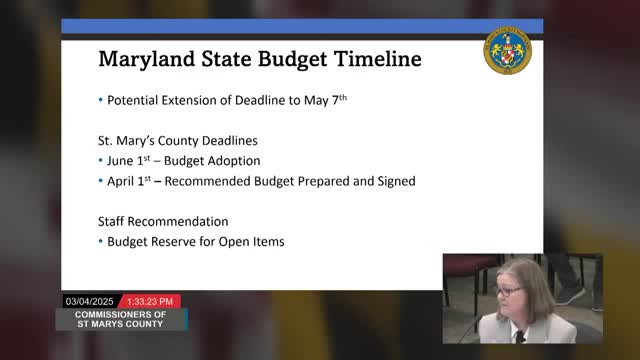Article not found
This article is no longer available. But don't worry—we've gathered other articles that discuss the same topic.
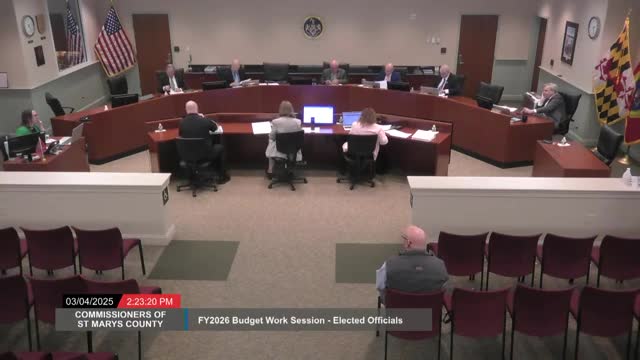
Sheriff reports progress on recruiting but outlines 49 vacancies; commissioners ask for updated vacancy roster
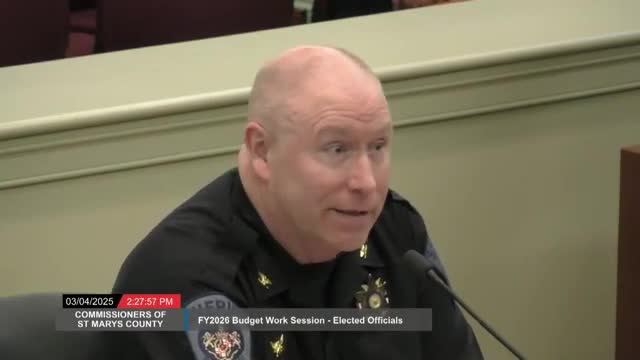
State's Attorney seeks three prosecutors and full-time victim-witness director; cites surge in jury trials
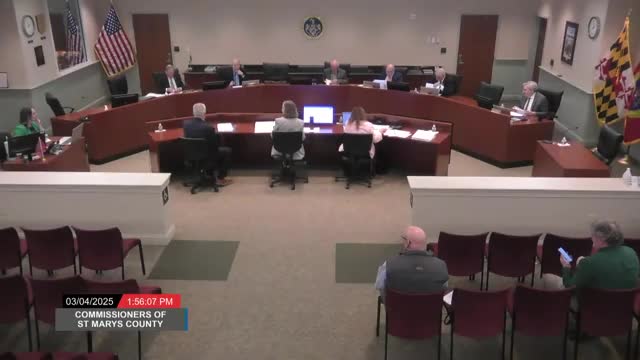
Circuit court requests fourth judgeship; commissioners discuss renovating courthouse and using fund balance for initial costs
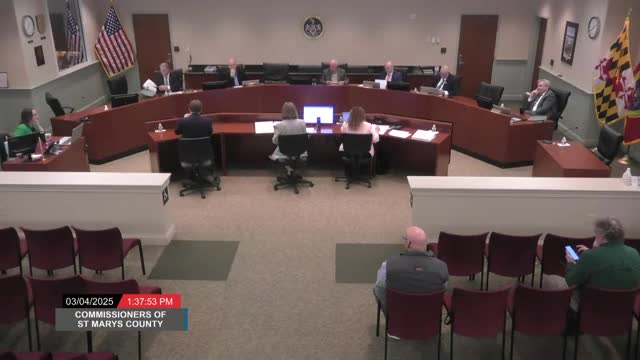
Commissioners direct staff to craft single senior property tax credit option, ask for cost scenarios
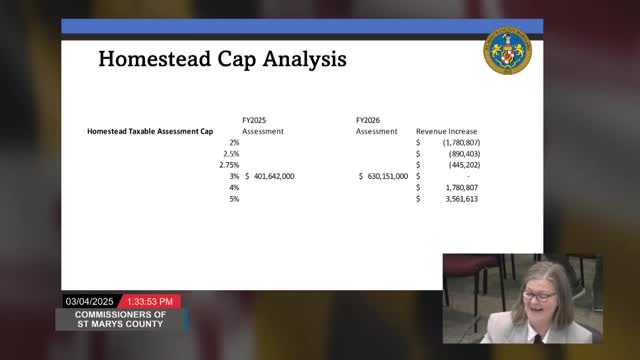
Commissioners hold homestead tax-cap at 3% for now; energy tax change kept under review
